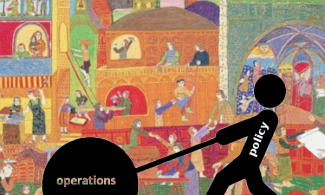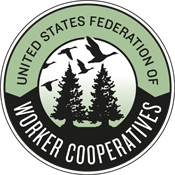Who's Afraid of Leadership?
In the flat organisational structures found in worker co-operatives leadership can be distributed, where authority is delegated to sub-groups, working parties or individuals. Those with delegated authority have autonomy and perform tasks however they see fit, as long as they understand how and when they will be held accountable to the wider membership.




 The independent New York State dairyman, who passed away last year, complained that Dairy Farmers of America used its control over local milk haulers to prevent him from doing business with anyone else. For Garrett Sitts, it was the abuse of food safety protocols.
The independent New York State dairyman, who passed away last year, complained that Dairy Farmers of America used its control over local milk haulers to prevent him from doing business with anyone else. For Garrett Sitts, it was the abuse of food safety protocols.




